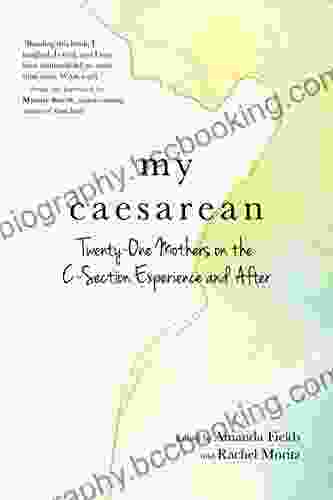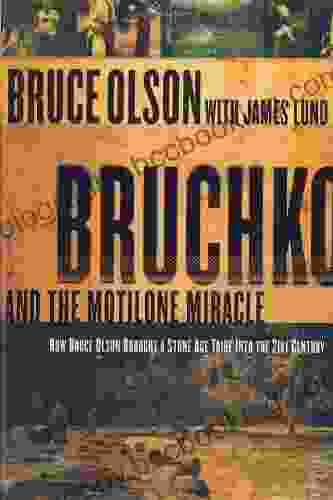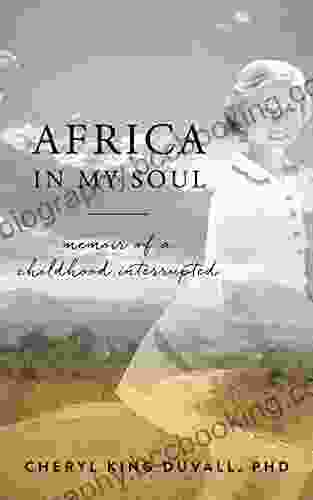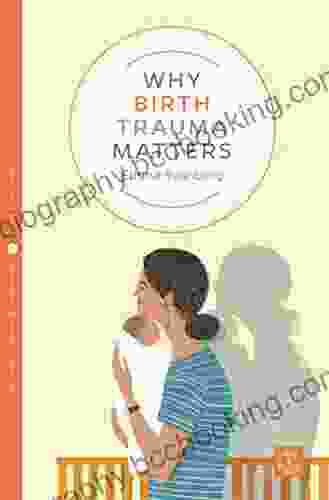Why Birth Trauma Matters: A Profound Insight into Its Lasting Impact


Birth is a transformative experience that brings forth new life and an abundance of joy. However, for some, this momentous occasion can be overshadowed by trauma. Birth trauma encompasses a wide range of experiences that can leave a lasting impact on the physical, emotional, and interpersonal well-being of both the mother and the child.
4.8 out of 5
| Language | : | English |
| File size | : | 987 KB |
| Text-to-Speech | : | Enabled |
| Screen Reader | : | Supported |
| Enhanced typesetting | : | Enabled |
| Word Wise | : | Enabled |
| Print length | : | 210 pages |
| Lending | : | Enabled |
In his groundbreaking book, "Why Birth Trauma Matters," Dr. Martin Pinter, a renowned trauma therapist, unveils the profound consequences of birth trauma and offers a roadmap for healing and recovery. This article aims to provide an overview of the key insights presented in Dr. Pinter's work, empowering individuals to recognize the signs of birth trauma and access the support they need.
Understanding Birth Trauma
Birth trauma encompasses a spectrum of experiences that can occur during labor and delivery. Common types of birth trauma include:
- Physical trauma: This refers to any physical injuries sustained by the mother or baby during birth, such as lacerations, perineal tears, or broken bones.
- Emotional trauma: This involves intense emotional distress experienced by the mother during birth, such as feelings of fear, anxiety, or powerlessness.
- Psychological trauma: This refers to the psychological impact of birth trauma, which can include symptoms such as post-traumatic stress disFree Download (PTSD),depression, or anxiety.
Birth trauma can arise from various factors, including medical interventions, lack of informed consent, or disrespectful treatment during labor. It's essential to recognize that birth trauma is not confined to extreme or life-threatening situations; even seemingly "normal" births can have traumatic consequences.
Consequences of Birth Trauma
Birth trauma can have far-reaching effects on both the mother and the child. Some of the common consequences include:
- Physical health problems: Birth trauma can increase the risk of subsequent physical health issues, such as chronic pain, pelvic floor dysfunction, and sexual problems.
- Emotional and psychological challenges: Birth trauma can lead to emotional and psychological distress, including anxiety, depression, PTSD, and relationship difficulties.
- Interpersonal difficulties: Birth trauma can impair a mother's ability to bond with her child and maintain healthy relationships with others.
- Impact on the child: Birth trauma can have a profound impact on the child's development, leading to issues with attachment, behavior, and overall well-being.
It's important to emphasize that the effects of birth trauma can vary widely, and not all individuals will experience the same consequences. However, it's crucial to be aware of the potential risks and seek support if needed.
Recognizing the Signs of Birth Trauma
Recognizing the signs of birth trauma can be challenging, as they can manifest in various ways. Some common signs include:
- Physical symptoms: Persistent pain, pelvic floor dysfunction, sexual problems, or other unexplained physical symptoms.
- Emotional symptoms: Anxiety, depression, flashbacks, nightmares, or avoidance of situations that remind you of the birth.
- Psychological symptoms: Difficulty connecting with your child, feeling disconnected from your body, or having a distorted sense of self.
- Interpersonal symptoms: Difficulty maintaining relationships, trust issues, or feeling isolated from others.
If you suspect you may have experienced birth trauma, it's essential to reach out for professional help. A qualified therapist specializing in birth trauma can provide support, validation, and evidence-based treatment options.
Healing from Birth Trauma
Healing from birth trauma is a complex and individualized process. There is no one-size-fits-all approach, and the journey will vary depending on the individual's needs and circumstances.
However, some common elements of successful recovery include:
- Therapy: Trauma therapy can help process the traumatic experience, address underlying emotions, and develop coping mechanisms.
- Support groups: Connecting with other individuals who have experienced birth trauma can provide a sense of community and validation.
- Self-care: Engaging in activities that promote physical, emotional, and mental well-being, such as exercise, meditation, and healthy nutrition.
- Mind-body techniques: Practices like yoga, somatic experiencing, or EMDR (Eye Movement Desensitization and Reprocessing) can help regulate the nervous system and promote healing.
It's important to remember that healing from birth trauma takes time and effort. Be patient and compassionate with yourself throughout the process, and seek professional support when needed.
Birth trauma is a serious issue that can have profound consequences for both the mother and the child. By recognizing the signs, understanding the potential risks, and accessing appropriate support, individuals can embark on a journey of healing and recovery.
Dr. Martin Pinter's groundbreaking work, "Why Birth Trauma Matters," provides a comprehensive exploration of this important topic, empowering individuals to reclaim their birth experiences and live fulfilling lives. Remember, you are not alone, and healing is possible.
Visit the Birth Trauma Partnership website for more information and resources.
4.8 out of 5
| Language | : | English |
| File size | : | 987 KB |
| Text-to-Speech | : | Enabled |
| Screen Reader | : | Supported |
| Enhanced typesetting | : | Enabled |
| Word Wise | : | Enabled |
| Print length | : | 210 pages |
| Lending | : | Enabled |
Do you want to contribute by writing guest posts on this blog?
Please contact us and send us a resume of previous articles that you have written.
 Book
Book Novel
Novel Page
Page Chapter
Chapter Text
Text Story
Story Genre
Genre Reader
Reader Library
Library Paperback
Paperback E-book
E-book Magazine
Magazine Newspaper
Newspaper Paragraph
Paragraph Sentence
Sentence Bookmark
Bookmark Shelf
Shelf Glossary
Glossary Bibliography
Bibliography Foreword
Foreword Preface
Preface Synopsis
Synopsis Annotation
Annotation Footnote
Footnote Manuscript
Manuscript Scroll
Scroll Codex
Codex Tome
Tome Bestseller
Bestseller Classics
Classics Library card
Library card Narrative
Narrative Biography
Biography Autobiography
Autobiography Memoir
Memoir Reference
Reference Encyclopedia
Encyclopedia Byron Nelson
Byron Nelson Cara Bramlett
Cara Bramlett Brent K Whitlock
Brent K Whitlock Brin Jonathan Butler
Brin Jonathan Butler Carol E Osborn
Carol E Osborn Brett Topel
Brett Topel Camille Fournier
Camille Fournier Campbell Macpherson
Campbell Macpherson Caroline Kaufman
Caroline Kaufman Brian R Dirck
Brian R Dirck Carla Rahn Phillips
Carla Rahn Phillips Carla Hannaford
Carla Hannaford Brigette Tasha Hyacinth
Brigette Tasha Hyacinth Brian Thompson
Brian Thompson Caroline James
Caroline James Casey Zeman
Casey Zeman Can Chen
Can Chen Brian Carr
Brian Carr Carrie Finison
Carrie Finison Brendan Smith
Brendan Smith
Light bulbAdvertise smarter! Our strategic ad space ensures maximum exposure. Reserve your spot today!

 Jacob FosterTwenty One Mothers on the Section Experience and After: Unveiling the Hidden...
Jacob FosterTwenty One Mothers on the Section Experience and After: Unveiling the Hidden...
 Houston PowellBruchko and the Motilone Miracle: Uncovering the Extraordinary Untold Story...
Houston PowellBruchko and the Motilone Miracle: Uncovering the Extraordinary Untold Story... Dashawn HayesFollow ·14.9k
Dashawn HayesFollow ·14.9k Stanley BellFollow ·13.3k
Stanley BellFollow ·13.3k Scott ParkerFollow ·17.4k
Scott ParkerFollow ·17.4k Craig BlairFollow ·7.4k
Craig BlairFollow ·7.4k Michael SimmonsFollow ·16.5k
Michael SimmonsFollow ·16.5k Kyle PowellFollow ·15.4k
Kyle PowellFollow ·15.4k Guy PowellFollow ·6.5k
Guy PowellFollow ·6.5k Nathaniel PowellFollow ·2.4k
Nathaniel PowellFollow ·2.4k

 Andy Hayes
Andy HayesUnveil the Rich Tapestry of Rural Life: Immerse Yourself...
Step into the enchanting pages of "Still...

 David Mitchell
David MitchellUnlocking the Depths of Cybersecurity: An In-Depth Look...
In the ever-evolving landscape of...

 Seth Hayes
Seth HayesUnlock the Secrets of Watercolor Landscapes: 37 Tools for...
Embark on a...

 Tyler Nelson
Tyler Nelson15 Insightful Answers to Questions on Uterine Fibroid
Uterine fibroids...

 Evan Hayes
Evan HayesAfrica In My Soul: A Literary Odyssey That Captivates the...
In a world where diverse cultures...
4.8 out of 5
| Language | : | English |
| File size | : | 987 KB |
| Text-to-Speech | : | Enabled |
| Screen Reader | : | Supported |
| Enhanced typesetting | : | Enabled |
| Word Wise | : | Enabled |
| Print length | : | 210 pages |
| Lending | : | Enabled |










